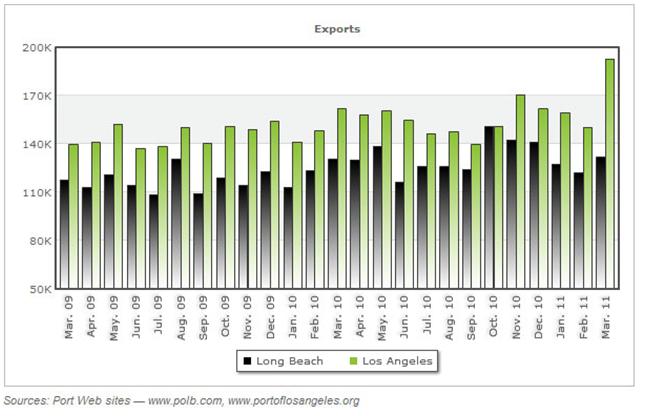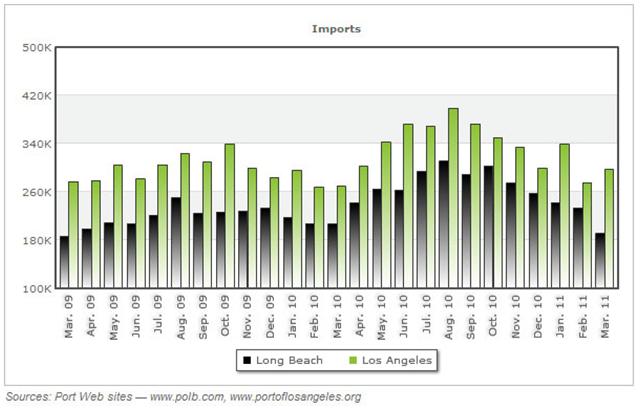According to a new study on port emissions, air quality at the Ports of Los Angeles and Long Beach has continued to improve during 2010.
- The Port of Long Beach diesel particulate matter emissions decreased by 42 percent
- The Port of Los Angeles diesel particulate matter emissions decreased by 39 percent
The port-funded study measured significant truck emission decreases in 2010. Among several clean air measures implemented and managed by the ports, such as cleaner truck standards, the study cites efforts to reduce idling times as being responsible for improved air quality.
Since its inception, PierPASS has managed more than 20 million OffPeak truck trips. During typical weekday traffic, OffPeak shifts handle over 63,000 truck trips. This dilution in traffic congestion not only positively affects air quality and truck emissions, but also improves idling times. The port-funded study indicated the noticeable differences in pollution measurements starting from 2005, the year many clean air measures, including the PierPASS OffPeak program, went into effect.
These results are welcomed, as last year the American Lung Association released a report citing the greater Los Angeles area as the worse city in the country for ozone layer pollution – examining fine particulate matter.
With programs such as PierPASS’ OffPeak Gates in place, and with more companies taking advantage of other clean transportation programs, pollution reduction at the ports is expected to continue in coming years.


